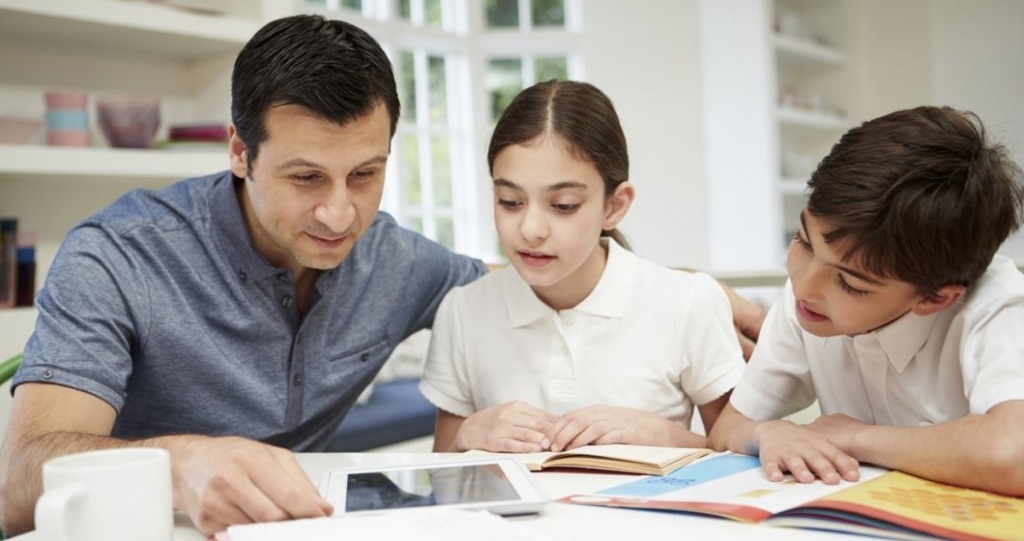
Supporting Your Child’s Education During COVID-19 by Emily Graham offers advice from a parent to other parents facing the challenge of helping their kids do some or all of their learning at home. Like her, you can learn to take advantage of the fact that when kids are learning a home, the parents can better understand what their students are learning and are in a better position to help them learn.
Introduction
- The COVID-19 pandemic has pushed many parents into double duty as at-home and online teachers — which, in some ways, provided a front-row seat to watching their children’s educational progress. If you’ve noticed your child struggling in particular areas or you want to supplement their education with a little extra help, there are myriad ways to do this in a fun and meaningful way. Dr. Doug Green is a seasoned practitioner who provides educational advice to education professionals and parents about how to ensure kids become lifelong learners.
How Does Your Child Learn?
- Not all people digest information in the same way. According to Scholastic Parent, some kids are visual learners, while others are linguistic, musical, or spatial learners. Your child may even be an experiential learner who absorbs and retains information by doing things rather than being shown techniques. Understanding how your child connects with content and information can help you find beneficial ways to help them engage, study, and develop fundamental skills and knowledge.
Talk to Your Child’s Teacher
- Your child’s teacher is an exceptional resource when it comes to helping you supplement his or her education. Stay in regular contact, and ask where your child is struggling and where he or she is excelling. Ask for recommendations for additional resources, like websites, reading materials, and study groups. Become familiar with what your child is studying in school, and look for ways to build on concepts outside the classroom. According to the Parent Institute, your child’s teacher is your partner — find ways to work together as a team
Promote Learning in Disguise
- As humans, we all learn new things every single day, often without even recognizing it. Once you’re familiar with what your child is studying, integrate
elements into everyday life. For example, if your preschool-aged child is learning to sort things by size, ask your child to line things up on a pantry shelf from smallest to largest when you’re putting away groceries. If your high-schooler is in a current events class, ask them to talk to you about what they read in the news, how they feel about it, and what it means to them in terms of the state of our society. Not only do these approaches support and reinforce learning, they also allow you to engage with your children on a new level.
Make Learning Fun
- It’s no secret kids love their screens, but you can use that to your advantage. You can find numerous online educational games and books that have likely been made into movies or programs your child enjoys. Look for the crossover and discuss the differences and similarities. This is yet another way to meet kids where they are — via material and mediums they’re already drawn to. These activities can be family affairs, and older kids can help younger ones, as well.
Ask Questions
- Another way to help your kids learn is to ask them questions. What do you think about that? What do you think that means? What did you like best about the book? What was your least favorite part of that program? Why? You will be amazed at the insights you get into your child’s learning style and outlook. This is also a way to share your perspectives, impart values, and not simply help “teach” a subject, but also ingrain concepts and convey problem-solving and comprehension skills that will help your kids throughout their lives.
Ask for Help
- If you or your child needs a little extra professional help navigating certain subjects or the current learning environment, there are numerous resources to tap into. Consider hiring a tutor, either online or in person. If your child has special needs of any type, ask about the creation of an IEP or individual education plan that meets his or her specific challenges. For kids with Attention-Deficit/Hyperactivity Disorder (ADHD), staying focused, especially in a home-schooling environment, can be a challenge, but there are ways to help them adapt and thrive. For example, some studies show that listening to music can help kids with ADHD focus better. Kids’ education is of paramount importance to both parents and educators. For insights, tips, and best practices, consider Dr. Doug Green’s services.
Emily Graham
- Emily is the creator of Mighty Moms. She believes being a mom is one of the hardest jobs around and wanted to create a support system for moms from all walks of life. On her site, she offers a wide range of info tailored for busy moms — from how to reduce stress to creative ways to spend time together as a family. She lives in Tucson, AZ, and can be reached by email at emilygraham@mightymoms.net.
DrDougGreen.com If you like the summary, buy the book





